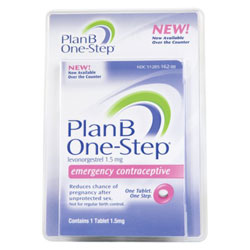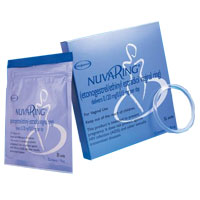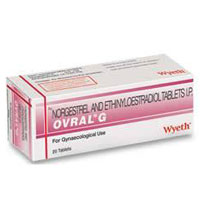Everything to Know about Birth Control Pills
The type of birth control women use is their personal decision, she has numerous options to choose from. If she’s a sexually active female, she may consider birth control pills.
Birth control pills are also known as oral contraceptive pills. These medicines are taken by mouth to prevent pregnancy and act as the most effective birth control method.
Types of birth control methods
Combination pills
Combination pills include synthetic or man-made forms containing the hormones estrogen and progestin. Most of the pills are active, which means they include hormones, whereas some pills are inactive with no hormones. Following are some of the types of combination pills:
Monophasic pills
These pills can be used in one-month cycles. Each active pill gives the same dose of the active hormone. During the last week of the cycle, she has to take inactive pills and have her period.
Multiphasic pills
These pills can be used in one-month cycles. It provides varied levels of hormones during the cycle. During the last week of the cycle, a woman takes inactive pills and has her period.
Extended-cycle pills
These pills are generally used in 13-week cycles. A woman takes active hormonal pills for 12 weeks, and during the last week of the cycle, she takes inactive hormonal pills and undergoes her period. As a result, she has her period only three to four times per year.
Progestin-only pills
Progestin-only pills, also known as mini-pills contain progestin and no estrogen. These pills may be a good option for women who cannot take estrogen for health or other reasons. With these progestin-only pills, all medicines in the cycle are active and include hormones. There are no inactive pills, so a woman may or may not have her period.
Deciding on a type of pill
It is not always that every pill suits every woman, therefore, it is important to talk to a healthcare specialist about which pill option would work best. Factors that can affect the choice include the following:
- Menstrual symptoms
- Breastfeeding
- Cardiovascular health
- Other chronic health conditions
- Other remedies
How does birth control pill work?
Generally, combination pills work in two ways. First, they prevent the body from ovulating. Second, these pills cause the body to thicken the cervical mucus, which helps in preventing the sperm from reaching the uterus. However, this pill can also work by thickening the cervical mucus and by thinning the endometrium. If the endometrium lining is thinner, the egg doesn’t get implanted in it, hence no pregnancy occurs.
How to use birth control pill?
Combination pills usually come in a variety of formats. These include monthly packs, following either 21-day, 24-day, or 28-day cycles. Or, sometimes, an extended regimen can follow 91-day cycles. For all of these formats, women need to take one pill each day at the same time of day.
On the other hand, Progestin-only pills come only in packs of 28, and are directed to take one pill at the same time every day.
Effectiveness
If the birth control pills are taken correctly, they effectively prevent pregnancy. It is claimed that both the combination pill and the progestin-only pill have a 9% failure rate with correct usage.
For the pills to be fully effective, progestin-only pills must be taken within the same three-hour time period every day.
However, the combination pills are slightly more flexible. Women should try to take these pills at the same time each day, but they can take them within the same daily 12-hour window and still prevent pregnancy.
Some remedies might lower the effectiveness of either type of pill, these include:
- Antibiotic like rifampin
- HIV medicines like lopinavir and saquinavir
- Antiseizure medicines like carbamazepine and topiramate
The pill may also prove out to be less effective if women suffer from diarrhoea or vomiting. If she suffers from a stomach illness, then, she must check with her healthcare expert to see if she’s at risk of pregnancy.
Advantages
Birth control pills have the following number of advantages, For example:
- They provide a 24/7 protection
- They are most effective and better than other birth control options
- Also, helps in regulating the monthly menstrual cycle
- They are fully reversible
There are also advantages depending on the type of pill. For instance, a combination pill may also provide some protection against:
- Acne
- Ectopic pregnancy
- Bone thinning
- Non-cancerous breast growths
- Endometrial and ovarian cancer
- Anemia
- Heavy periods
- Severe menstrual cramps
Progestin-only pills have other advantages as well, for example, being safer for women who:
- cannot tolerate estrogen therapy
- smoke
- over 35 years
- have a history of blood clots
- wants to breastfeed
Disadvantages
Certain disadvantages of birth control pills include, that they don’t protect against sexually transmitted infections. To make sure one protects against these infections, one needs to use condoms in addition to the daily pill.
Also, the women have to remember to take her pill every day. And she needs to make sure that she always has a new pack ready to go when she finishes a pack. If she misses a pill or delays starting a new pack after finishing a cycle, her risk of pregnancy increases.
Side Effects
While birth control pills are safe for most of women, but some may come with some side effects. Every woman has different reactions to the hormones in birth control pills. Some women have side effects, like:
- decreased sex drive
- nausea
- bleeding between periods
- breast tenderness
If women have these side effects, they will likely improve after using the pill for a few months. If they don’t improve, talk to the healthcare specialist. They may suggest switching to a different type of birth control pill.
Risks
A serious risk of taking birth control pills, especially combination pills, is an increased risk of blood clots. Which can lead to:
- deep vein thrombosis
- heart attack
- stroke
- pulmonary embolism
Overall, the risk of a blood clot is low. Out of 10,000 women, fewer than 10 will only develop a blood clot after taking a combination pill for a year.
However, the risk of a blood clot from the pill is higher for women, who are:
- very overweight
- suffers high blood pressure
- on bed rest for long periods
Talk to the healthcare expert
There are so many birth control options available today, and the birth control pill is considered to be an excellent one. However, the best birth control choice for women depends on many factors. To find an option that works best women should talk to their healthcare specialist.














